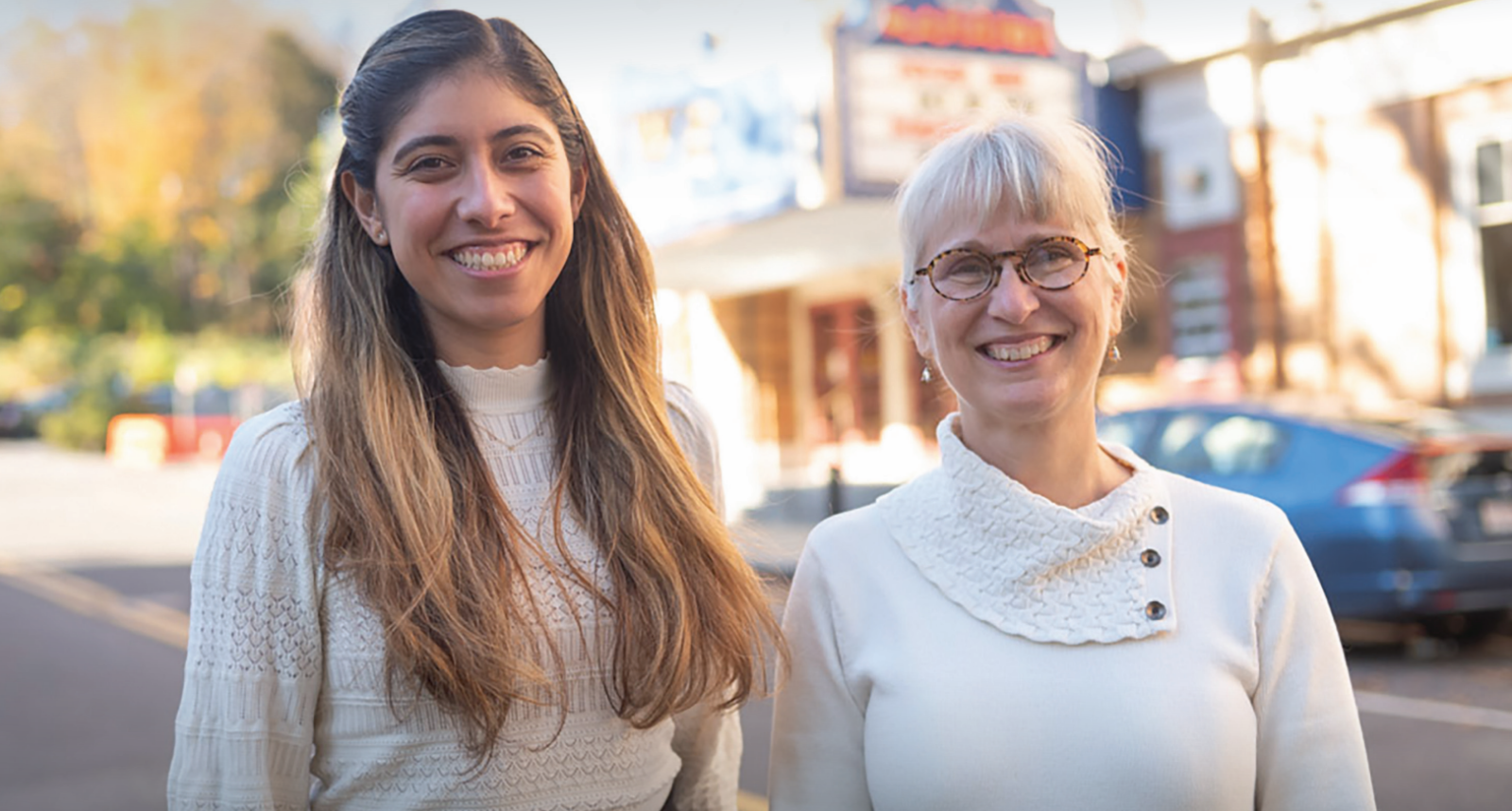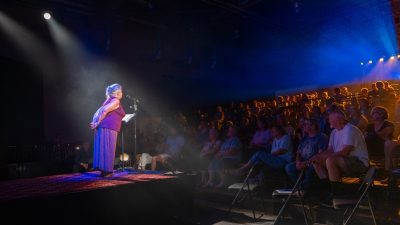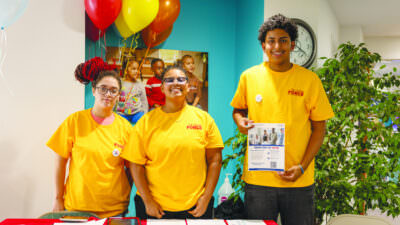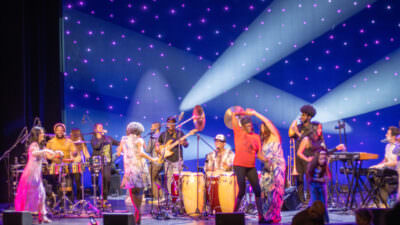As coordinator of a Spanish-language advisory committee at the Mahaiwe Performing Arts Center, Melissa Canavan is working to break barriers and bring in new audiences. Last year, the committee organized film screenings that drew nearly 200 attendees from a variety of Latin cultures. Their efforts were so successful that the director of one of the selected films and two of its actors flew in for an event.
“It really felt like home for some people,” Melissa said. “It was great to see such a wonderful environment and exchange of dialogue.”
Creating welcoming spaces is at the heart of our Arts Build Community initiative, which funds this work and launched in 2017 with support from the Boston-based Barr Foundation. Through research, sustained grantmaking and capacity-building support, arts education and donor engagement, Berkshire Taconic works with dozens of partners to test new approaches to community engagement that use the proven power of the arts to build trust, cooperation and unity, while strengthening the arts as a sector.
For Julie Haagenson, that engagement began with her neighbors. Despite living in Berkshire County for over five years, they had never been to Tanglewood. The older couple love classical music but were intimidated by the storied venue. That’s what Julie learned when she brought them to their first concert as part of an ambassador program also funded by ABC.
A former teacher who identifies as biracial and LGBT+, Julie eagerly signed on to participate in the Center for Peace through Culture’s program connecting underrepresented families to cultural experiences around the county. It addresses head-on what CPC has called “insider/outsider perceptions” that persist for many year-round residents.
To prepare for her engagement, Julie received a personal tour from Tanglewood’s director of patron experience, who walked the grounds with her, shared its history and briefed her on the site’s accessibility. The night of the concert, Julie organized the tickets, transportation and meal, and started a dialogue with her neighbors about participating in arts and culture.
“At the heart of what we’re doing is relationship building,” Julie reflected recently. “As an ambassador, I’ve experienced a whole series of connections that I didn’t expect. When we started thinking about it, we realized it’s about a sense of belonging.”
To date, over 60 ABC partners have received more than $850,000 in grants and engaged nearly 10,000 residents from historically underserved populations in programming. Key features include rapid deployment of grant dollars to put new ideas into action, long-term collaborations among committed partners, and, at the center of it all, the voices and experiences of diverse communities. A generous new grant from Barr extends ABC into 2026.
It began with a team of resident-researchers who conducted community-based participatory research through surveys, interviews and focus groups, reaching over 450 Pittsfield residents. They investigated the experiences of communities of color, immigrants, youth, people living on low incomes and other residents who wish to participate in the arts but face barriers such as cost, transportation and social discomfort.
Four of those researchers continue to bring their lived experience to the ABC grantmaking committee. Two of them, Elliott Hunnewell, with experience in tourism and public health, and Drew Herzig, an LGBT activist with a fine arts background, are encouraged by changes they see on walls and stages, and in expanded and accessible promotions. Still, they are keeping a watchful eye on how arts and cultural institutions and local communities continue to integrate and build solidarity.
In the end, Herzig said, “somebody from higher up the power differential has to reach out to members of the community at a lower power level and pull them up.”
“And everybody benefits from that,” Hunnewell said. “It’s not about the information. It’s about the invitation.”




